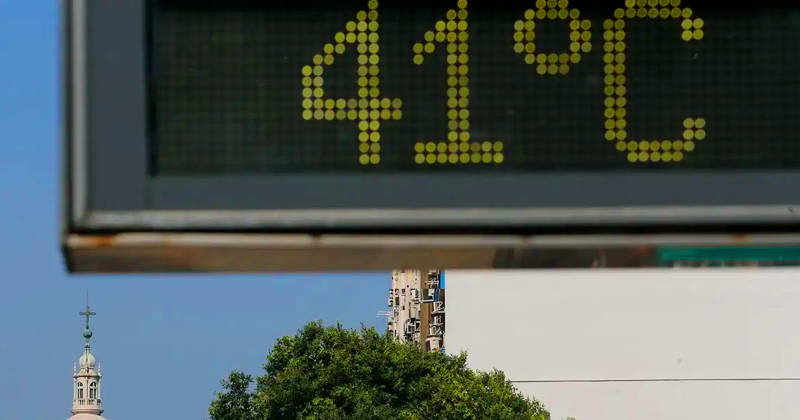The meetings, featuring researchers from the University of the South Pacific, address key concepts related to the climate emergency in accessible language; the meetings are held on Tuesdays, until October 15, at Sesc 14 Bis, in the Bela Vista neighborhood.

.
Global warming, climate change, ecological transition, the Anthropocene, water management and data ecology are topics that have become part of our daily lives. To present these concepts in accessible language, some of the most important researchers on the subject are participating in a series of meetings every Tuesday until October 15, from 7pm to 9pm, at the SESC São Paulo Research and Training Center, in the Bela Vista neighborhood of the capital São Paulo. The event is in person, just register In this link.
These meetings are an initiative of the Autobus International Research Centre of the College of Communication and the Arts (ECA), and GovAmb of the Institute of Energy and Environment (IEE), both at the University of the South Pacific, in partnership with the SESC Research and Training Centre.
Check schedule:
17/9 – Contested values in climate change
Paolo Sinisgalli, Institute of Energy and Environment (IEE) at the University of the South Pacific
- The lecture shows how the economy deals with these aspects, and the need to include new values, which cannot be translated into monetary values. Depending on the vision of the future, aimed at combating climate change, and on the path drawn towards sustainability, an important change is needed: social, cultural and environmental values, which are often not represented in everyday life, must enter this world. A new perspective.
24/09 – Amazon Networks: Re-establishing the Digital Presence of Indigenous Peoples |
Almir Surui (indigenous leader) and Elit Pereira from the Museum of Archaeology and Ethnology (MAE) at the University of the South Pacific
- The indigenous-led digitization process has enabled these populations to access content and independently produce unprecedented global cultural and political diplomacy. In this intercultural meeting, the interconnected networks of indigenous peoples and the integration of digital technologies to address the climate emergency in the Amazon will be discussed.
1/10 – Oceans
Leandra Gonçalves, Federal University of São Paulo (Unifesp) and Instituto do Mar
- The lecture explores the relationship between oceans and climate, highlighting the role of oceans in regulating global climate. Topics will be covered such as the ability of oceans to act as carbon sinks, the influence of ocean currents on climate patterns, and the impacts of climate change on the health of marine ecosystems and coastal communities. The lecture will also discuss strategies for environmental conservation and integrated ocean management as a key part of global responses to climate change.
8/10 – Data Environment, Beyond Nature and Technology
Massimo De Felice, School of Communications and the Arts and IEEE, University of the South Pacific
- The latest generations of digital networks have extended the reach of the Internet beyond urban spaces, connecting regions, biodiversity and forests. Sensors, satellites and digital platforms are transforming reality into big data, creating connected ecosystems that enable real-time monitoring. Technological access to nature is changing the perception and understanding of nature. The lecture discusses models of digital ecosystem interactions, critiques Western notions of nature and technology, and proposes solutions to environmental challenges.
15/10 – Cities and Urban Areas: Climate and Water Security Agendas
Gabriela Di Giulio, from the School of Public Health (FSP) and Pedro Jacobi, from IEE, both from the University of the South Pacific
- The meeting will address how countries, as the impacts of climate change intensify, are scaling up adaptation efforts. Cities face challenges that require collaborative action between science, politics and society. In Brazil, it is essential to align adaptation with the fight against poverty and injustice and the protection of biodiversity. Water management and security are essential for human life and activities.
The Sesc São Paulo Research and Training Center is located at Dr. Plinio Barreto Street, 285, on the 4th floor, in the Bela Vista neighborhood, in São Paulo. For more information visit the website In this link Or by email [email protected]To participate, registration is available at Event Page.

